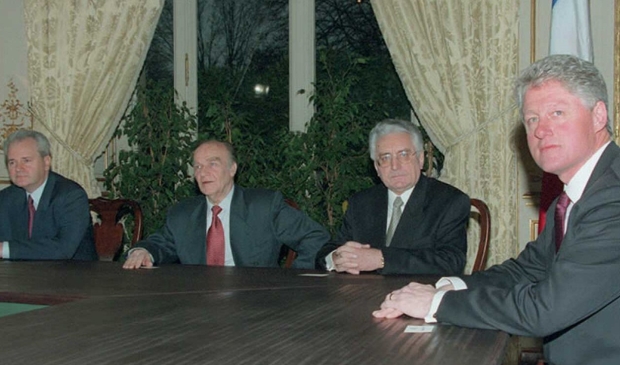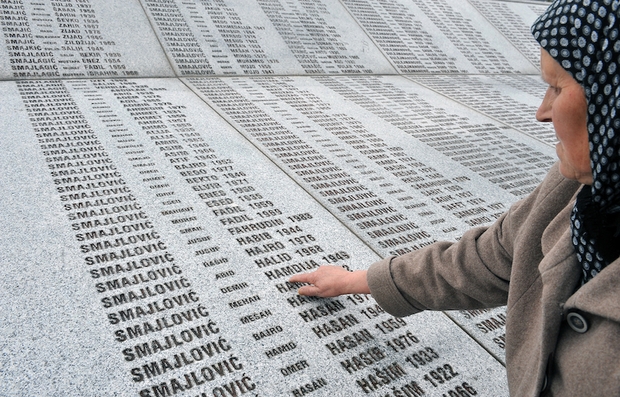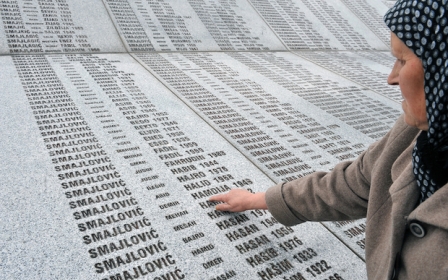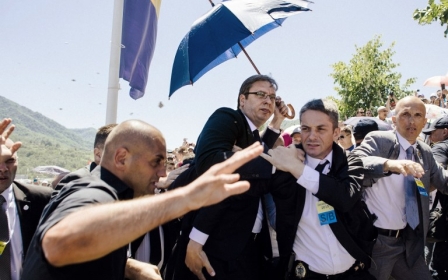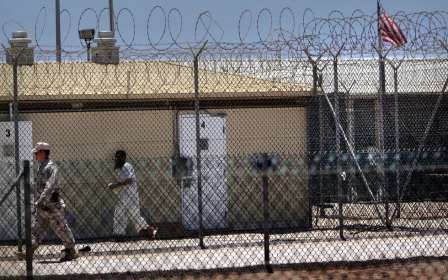Bosnia: How the Dayton Agreement created a divisive nightmare for Bosnians
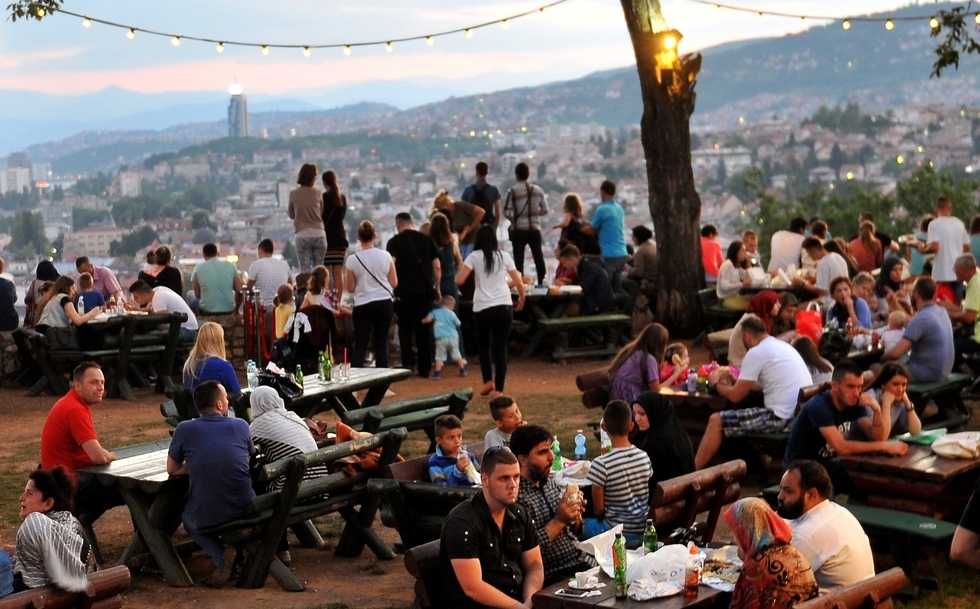
On Wednesday Bosnian Serb military leader Ratko Mladic was convicted of genocide, war crimes and crimes against humanity by a UN tribunal in the Hague, 22 years after the war ended.
His conviction also marks the 22nd anniversary of the Dayton Agreement, which ended the worst conflict seen in Europe since World War II.
More than 100,000 people were killed and around two million were displaced. One of the last events in the war was the Srebrenica genocide in which more than 8,000 people were killed in a few days.
A temporary solution?
After Europeans failed several times to end the war, US President Bill Clinton's administration took the leading role and literally shut all parties off in a room in Dayton until a deal was reached.
Three years of brutal killing, atrocities and genocide finally came to an end. On 21 November 1995, it was announced that the war was over and that the Dayton Peace Agreement (DPA) had been signed.
When asked about the agreement, the main actors said that it was a temporary solution that merely aimed to end the war.
But what was first announced as a temporary solution gave birth to the most complicated and convoluted political system in the world, a nightmare for Bosnian citizens and a major obstacle to the development of Bosnia and its peoples.
But what was first announced as a temporary solution gave birth to the most complicated and convoluted political system in the world, a nightmare for Bosnian citizens
The "temporary solution" put in place 13 governments, four levels of local authorities and three state presidents. What were the results? Ninety two unimplemented decisions of the Constitutional Court, 13 educational systems with three national programmes, constant gridlock and neglect of minorities.
Additionally, the glorification and rewarding of Europe's worst war criminals which is being done institutionally by the Bosnian Serbs' political authorities. They even rewarded Radovan Karadzic who was convicted for the genocide committed in 1995 and many others. Serbs still consider Karadzic and others, such as Mladic, who was convicted this week, as their heroes 22 years since the end of the war.
This is compounded by the lack of prospects for any economic development, and a deeply divided society.
According to the World Bank report, Bosnia is a world leader in the youth unemployment rate with 65.4 percent along with the highest corruption rate in the Balkans and one of the highest in Europe for years.
Apartheid in Bosnia?
Is this the democracy promised by the international community? The Dayton Peace Agreement, with all its elements, deprived me, as a Bosniak, of the chance to know fellow young Bosnians - Serbs and Croats - although I should have every right to do so.
We cannot learn from history and analyse it together in order to prevent the same terrible things from happening to us again. We cannot even develop a strong national, collective identity because the international community divided us with this ridiculous "solution" before we were even born.
The agreement does not offer a single chance for structured inter-ethnic cooperation and learning. Consequently, few Muslim Bosniaks have visited the University of East Sarajevo, just 15 minutes away from Sarajevo, the capital of Bosnia.
Will it take another war in Bosnia to make the international community fulfill its promise? Is that the only way to change the course of Bosnia?
This is because it is located in a city with a Serb majority. Other "ethnically clean" places exist where the situation is even worse, and no members of two groups dare to mix.
In several cities with a mixed population, there are examples of "two schools under one roof". What would be called apartheid in any other part of the world is reality in Bosnia - a single building with two schools, where students are not mixed but separated, having two different educational systems. This is the reality we live in.
It is not surprising to find that young Bosnians are desperate. Thousands of my peers have already left Bosnia. This number will grow into the hundreds of thousands in just a few years, which, for a country with a population of 3.5 million, is a disaster, leaving an ageing population with no future.
What the enemies of Bosnia could not accomplish during the war, they have managed to accomplish in the post-war period.
A lasting peace
The international community has forgotten its promise, leaving Bosnia to endure the consequences of the "temporary" solution that has ossified into a permanent one.
Bosnian youth are deeply frustrated and angry at an international community that not only failed to find solutions, but also tied our hands before we even came into this world, preventing us from finding our own solutions.
What was first announced as a temporary solution gave birth to the most complicated and convoluted political system in the world
Will it take another war in Bosnia to make the international community fulfill its promise? Is that the only way to change the course of Bosnia's future?
In a Europe that is facing many crises, we cannot afford to have more war and conflict. We must make sure that we do not make the same mistakes as we did in the past.
The Forum on Western Balkans in London, due to be held next year, may be an opportunity to do so, as it will be the first major international event to include Bosnia since the end of the war.
The international community must address the damage created by a temporary solution that has deepened divisions, damaged Bosnia's prospects for prosperity and done nothing to create lasting peace. We must act before it is too late.
- Ismail Cidic is president of the Student Parliament of the International University of Sarajevo. He is the coordinator of the Bosnian Youth Forum that advocates for Bosnian causes and interests in the international media.
The views expressed in this article belong to the authors and do not necessarily reflect the editorial policy of Middle East Eye.
Photo: Bosnian Muslims gather for an outdoors meal at a vantage point overlooking Sarajevo (AFP)
New MEE newsletter: Jerusalem Dispatch
Sign up to get the latest insights and analysis on Israel-Palestine, alongside Turkey Unpacked and other MEE newsletters
Middle East Eye delivers independent and unrivalled coverage and analysis of the Middle East, North Africa and beyond. To learn more about republishing this content and the associated fees, please fill out this form. More about MEE can be found here.



